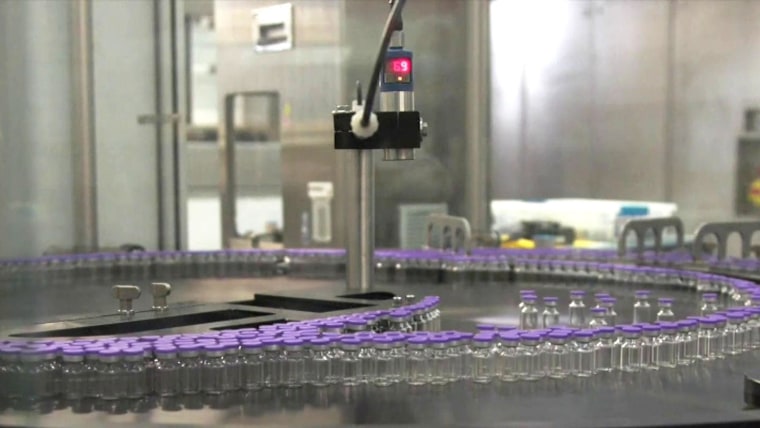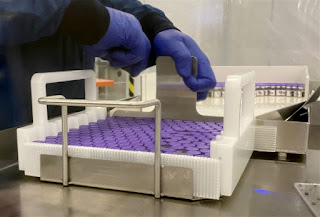The United Kingdom became the first country Wednesday to formally approve the
Pfizer and BioNTech Covid-19 vaccine, a huge symbolic milestone in the fight against the pandemic.
The first inoculations are set to be rolled out next week, the government said, although its first batch of 800,000 will cover a relatively small number of healthcare workers and the elderly.
The vaccine has been authorized far quicker than any other in history, its lightning development outpacing the 15-20 years it usually takes to develop these types of medicines.
Politically it will not go unnoticed that British regulators have made this decision ahead of their American counterparts, a symptom of different officials and businesses around the world trying to strike the right balance between speed, safety and effectiveness.
President Donald Trump has accused the Food and Drug Administration
of dragging its feet, while the FDA says it's simply taking the time to make the right call. FDA regulators are set to discuss the Pfizer-BioNTech vaccine next week, by which time it will already be available across the U.K., the British government said Wednesday.
"For so long we've been saying that if a vaccine is developed, then things will get better in 2021, and now we can say when this vaccine is rolled out things will get better," British Health Secretary Matt Hancock told the BBC.
Nearly 1.5 million people around the world have died from the virus, with more than 271,000 deaths in the U.S. and nearly 60,000 deaths in the U.K.
The U.K. has one of the highest Covid-19 deaths per capita in the world, behind only Italy, Spain, Peru and Belgium, according to
Johns Hopkins University.
The vaccine by Pfizer, a U.S. pharmaceutical giant, and its German partner BioNTech is one of three front-runners that have delivered promising results in recent weeks. Clinical trials found it was 95 percent effective at preventing symptomatic Covid-19, it said.
"This authorization is a goal we have been working toward since we first declared that science will win," Pfizer CEO Albert Bourla said in a news release following the British decision.
But even for a wealthy country like the U.K. rolling out this vaccine won't be easy.
The U.K. has ordered 40 million doses — enough for up to a third of the population given that this is a two-shot regimen. None of these have been delivered yet, and most of them won't come until next year.
When the first batch does arrive from Pfizer's plant in Belgium it will contain around 800,000 doses, Hancock told the BBC. These will go to healthcare workers, care home staff and residents, and people over 80.

By the end of the year, the supply will likely ramp up into the "millions," Hancock said, deliberately declining to give a specific figure because it will be "determined by how quickly Pfizer can manufacture in Belgium."
Every time a new batch is sent over, it will have to be tested again by the U.K.'s Medicines and Healthcare products Regulatory Agency.
The shots must be kept at minus 94 degrees Fahrenheit, requiring specialist dry-ice freezers that many doctor surgeries and even hospitals do not have. Pfizer-BioNTech says the vaccine can be kept for its final five days at regular refrigerator temperature.
In the U.S., both Pfizer-BioNTech and Moderna have
submitted applications to the FDA for an emergency use authorization. The FDA is expected to meet to discuss these vaccines next week and the week after respectively.
The European Union will wait longer than that, its regulator announcing Tuesday that it would not make a decision on the Pfizer-BioNTech vaccine until as late as Dec. 29, and Moderna's by Jan. 12.





Comments
Post a Comment